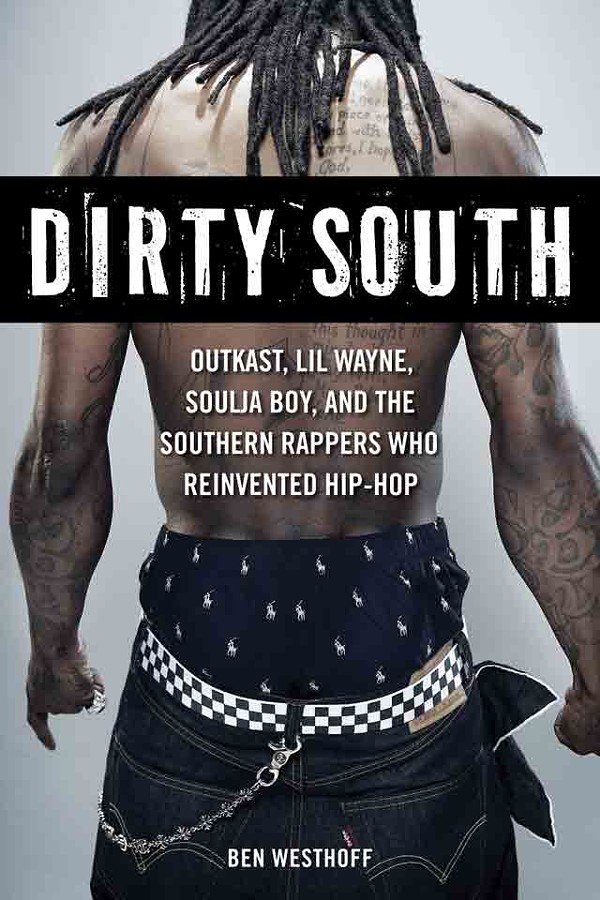
In 2004, OutKast became the first hip hop group to win album of the year for their record-shattering and now-classic album, Speakerboxxx/The Love Below.
With such hits as “The Way You Move,” “Hey Ya,” and “Roses,” most mainstream audiences wouldn’t be surprised to find out the album was certified Diamond, selling over 10 million units before it could even turn 10 years old.
What mainstream audiences might be surprised to find out, is that during the timeframe that album swept the Grammies—the midst of the Crunk era, whose many artists could trace their roots to Southern hip hop, whether it be Houston, Atlanta, or Memphis—OutKast’s accomplishment was perhaps the highest peak reached by a group that could trace its roots to a sound that originated in Dirty South, a sound that started in a basement in Atlanta’s College Park and East Point neighborhoods in the 1990s.
During that same decade, radio and television airwaves were saturated with the sound of the West Coast / East West Coast rivalry that defined a generation. We can hear this sound in some of the most popular songs of Tupac and Biggie, whose heavy beats and hardcore lyrics—especially when taken along with their heavy and hardcore lifestyles—came to define the dynamic between East and West Coast sounds as a competition between socially conscious songs about serious issues being played out in real time on American radio and television.
It is phenomenal, then, that the Dirty South sound could emerge during this decade, much less become immortalized in the proverbial hop hall of fame when OutKast’s André, while up on stage to receive the award for Best New Artist at the 1995 Source Awards (after the group was boo’d by the audience no less), approached the mic and finally got a word in edgewise:

André’s words were controversial that year for many reasons, not least of which because they interrupted what the East Coast/West Coast rap scenes thought would be an answer to the question of which region was producing the best new artist. According to the critics, that region was the South.
But it was also a production company called Organized Noize, which produced not only OutKast, but Goodie Mob, the less-known group whose 1995 track “Dirty South” coined the genre term.
Like a lot of East Coast/West Coast songs of the time, “Dirty South” featured some socially conscious lyrics that called attention to some serious issues affecting their local neighborhoods, including a hyperactive police force:
One to da two da three da four
Dem dirty Red Dogs done hit the door
And they got everybody on they hands and knees
And they ain’t gonna leave until they find them keys
Not to mention some of the implications of Bill Clinton’s tough-on-crime policies at the time:
Now if dirty Bill Clinton fronted me some weight
Told me to keep two, bring him back eight
And I only brought him five and stuck his ass for three
Do you think that Clampett will sick his goons on me?
But its biggest contribution was the refrain:
What you niggas know about the Dirty South?
Along with the track’s minimalistic beat, reverb, and call outs to Atlanta neighborhoods and street names like East Point, John Freeman Way, Delowe, and Piedmont Park, the song defined the “Dirty South,” and specifically Atlanta, as a place that was just as socially conscious as Los Angeles and New York City, if not with a slightly lighter sense of humor.
This message and sound would be repeated on the title track “Soul Food” with even more melodic elements, as Goodie Mob members like Cee Lo Green both rapped and sang in a soulful way that would come to define the Dirty South sound as having brought a soulful melody to what had mostly been a back-and-forth between beats.
The southern sounds launched by Organized Noize and Goodie Mob on this critically acclaimed album would later come to define many of the sound qualities that can be said to distinguish the most popular songs of the Dirty South from some of the most popular songs coming out of the East Coast / West Coast rap scenes. These include but are not limited to:
- More melodic elements that blend singing and rapping for soulful vibe
- An emphasis on large group, almost family-oriented collaboration
- Very socially conscious but often lighter sense of humor
- Slower beats per minute (see: chopped and screwed)
- Horns and other non-electronic instrumentation
Artists that benefited from the production of Organized Noize include but are not limited to:
- OutKast on Southernplayalisticcadillacmuzik
- TLC on “Don’t Go Chasin’ Waterfalls”
- Ludacris on “Saturday (Oooh! Ooooh!) ft. Sleepy Brown”
So while Outkast may be the group to which the Dirty South sound is often attributed because they are the most mainstream group to climb all the way from that basement in South Atlanta to the world stage, it would be more accurate to say the Dirty South sound originated from the production of Organized Noize, its Dungeon Family, and Goodie Mob.
For it is mostly likely these groups’ impact on OutKast in 1995 that drove André to say “The South got somethin’ to say.”
—Joshua Ryan Jackson
Works Cited
Jones, Qunicy. The Art of Organized Noize. Starring Sleepy Brown, Raymond Murray, and Rico Wade. Netflix, 2016.
Westhoff, Ben. Dirty South: Outkast, Lil Wayne, Soulja Boy, and the Southern Rappers Who Re-invented Hip Hop. Chicago Review P, 2011.